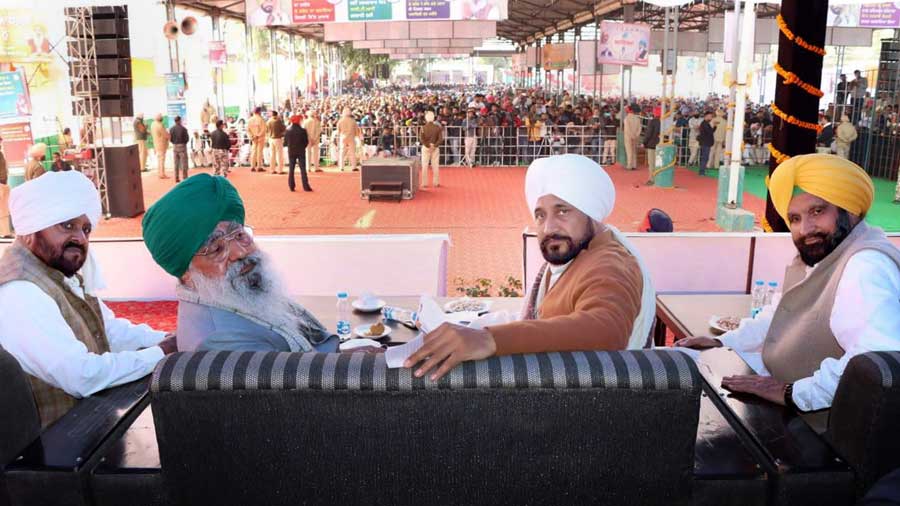There seem to be too many cooks in Punjab’s electoral kitchen at the moment. Apart from the ruling Congress and its challengers — the Shiromani Akali Dal, Aam Aadmi Party and Bharatiya Janata Party — two farmers’ outfits, the Sanyukt Sangharsh Party under the leadership of Gurnam Singh Chaduni and, now, the Samyukta Samaj Morcha, a platform of 22 farmers’ groups, have decided to throw the proverbial turban into the electoral ring. The question, obviously, is which party’s broth is likely to be spoiled by these new cooks. Would the Congress, which has queered what looked like an easy pitch after its bitter parting with Amarinder Singh, be the victim? Would the AAP, which was hoping to tap into simmering discontent within the representatives of the agrarian community, be a casualty as a result of the emergence of the new players? Would the BJP and Mr Singh’s fledgling party gain from the fragmentation in the farmers’ constituency? The answers are not clear at the moment.
The real issue, however, lies elsewhere. A rise in the number of political outfits need not be detrimental to the cause of democracy. In fact, they offer the electorate a wider set of choices. It must be pointed out that one of the persistent grievances of India’s farmers concerns the failure of mainstream political parties to address their complaints. A political arm for farmers, it is argued, could plug this gap. Yet, politics is a slippery field. In the history of Indian democracy, there have been numerous instances of community interests being subverted by the compulsions of competitive politics. Perhaps that is the reason why the Samyukta Kisan Morcha, which spearheaded the long, courageous agitation against the contentious farm laws and forced the Centre to repeal the legislations in the end, had been keen on keeping political parties at arm’s length. Significantly, the SKM’s stance on participating in elections has not changed yet. This mistrust in politics and the corresponding preference for a civil — mass — mobilization to press for demands remain one of the enduring ironies of the Indian polity. For democracy to be representative, its politics must be accommodating of the political aspirations of every community. But for that to happen, political parties must learn to honour the demands of marginalized groups first. Political representation sans public welfare is meaningless.











